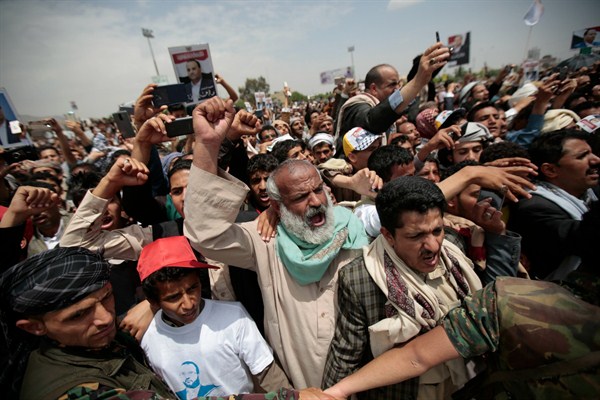In recent days, the war in Yemen has worsened, with Saudi-led coalition airstrikes that killed the political leader of the Houthi rebel movement, Saleh al-Sammad, on April 19, and over 50 Houthi militants, including two senior commanders, on April 27. How Yemen’s Houthis respond to the attacks will determine the course of the war in the coming months. But any hopes for movement toward a political solution appear to be dashed, despite quiet efforts by Oman to bring the parties together, and public admonitions by U.S. officials to their Saudi counterparts to focus on bringing this tragic war to an end.
The situation on the ground in Yemen’s four-year-long war is even grimmer than it was a year ago, when it won the dubious distinction of causing the world’s worst humanitarian crisis. With Houthi missiles hitting targets inside Saudi Arabia, presumably with Iranian assistance, the war is often seen as a proxy contest for regional primacy between Riyadh and Tehran. It’s messier than that, though. On devastated Yemeni territory, battles also pit al-Qaida, the local affiliate of the Islamic State and southern Yemeni secessionists against external forces from the United Arab Emirates and the United States, among others.
But it’s the recent killings of Houthi leaders that raise new concerns about how to bring this war to an end. Does eliminating insurgent leaders facilitate a settlement, or derail its prospects? The Houthis have already replaced Sammad, who headed the Houthi’s Supreme Political Council that effectively governed northern Yemen, with Mahdi al-Mashat, who is generally considered more hard-line. Sammad was the second most valuable target for the coalition, after Mohammed Ali al-Houthi, a high-ranking leader. Houthi sources have talked of a “crushing response” to these attacks, and many expect the war to escalate.

